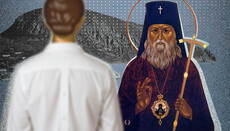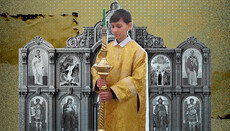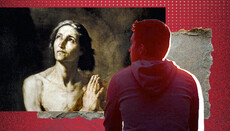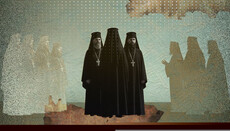The Maccabean Martyrs: Old Testament Glory and Modern Christian Shame
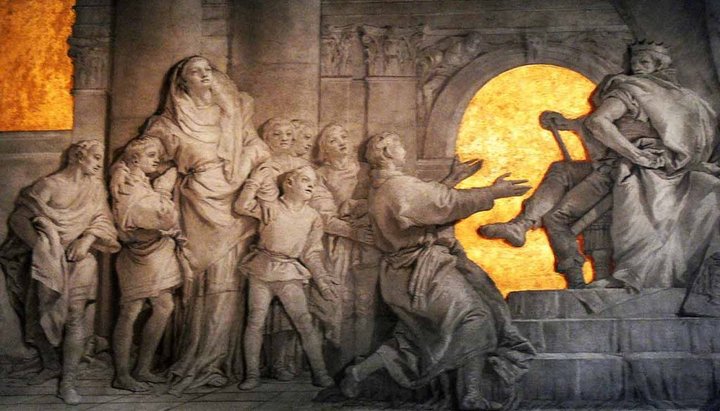
On August 14, the Dormition Fast begins. The Orthodox Church commemorates the holy Maccabean martyrs and the Procession of the Honorable Wood of the Life-Giving Cross of the Lord.
On this day, in the tradition of the Russian Church, there is also the remembrance of Prince Andrei Bogolyubsky’s victory over the Volga Bulgars in 1164. To be honest, of this entire “triptych” of feasts, from the very beginning of my conscious life in the Church, the one that has always struck me the most has been the feat of the Maccabean martyrs. The other events, while important, are of a much lower “degree of intensity” – the level of suffering and the personal involvement of particular individuals in them is not the same.
The feat of the seven brothers, their teacher Eleazar, and their mother Solomonia, described in chapters 6 and 7 of the Second Book of Maccabees, amazes not only with the courageous endurance of incredible tortures but also with the abundance of words spoken about the resurrection of the dead. We should recall that their martyrdom took place during the reign of the Syrian king of the Seleucid dynasty, Antiochus IV Epiphanes – in the first half of the 2nd century B.C., which is not only Old Testament times but also the period of the “silence of the prophets.” Malachi, the “seal of the prophets,” had been silent for three hundred years before these events.
* * *
The first to give his life for the Lord’s laws was their teacher Eleazar. Scripture reveals two reasons for his decision:
- Hypocrisy (they urged him to pretend to eat pork) he deemed unworthy, both of his venerable age and as a wicked example for the young.
- Eleazar clearly declared that God’s judgment cannot be avoided – neither in this life nor in the life to come.
From the words of the brothers, it is evident that by “life to come” they meant not only the life of the soul after death but specifically the resurrection of the dead.
Thus, we read that the second brother, Antonin, just before his death, said: “You, accursed wretch, dismiss us from this present life, but the King of the world will raise us up, who have died for His laws, to everlasting life” (2 Macc. 7:9).
The third, Gurias, when ordered to stick out his tongue so it might be cut off, stretched out his hands as well, saying: “From Heaven I received these, and for His laws I disdain them, and from Him I hope to receive them again” (2 Macc. 7:11).
The fourth, Eleazar, also confessed before death: “It is good, being put to death by men, to look for hope from God to be raised up again by Him; but as for you, you shall have no resurrection to life” (2 Macc. 7:14). His words even carried a warning for Antiochus Epiphanes – that he, as a lawless man, would not be raised to life at all, or would rise to judgment (John 5:29). Thus, his punishment would not be limited to earthly life alone.
I dare to say that in this respect the Maccabean martyrs stand in some measure even higher than the martyrs of the New Testament, for they did not yet have that hope in the death-conquering Christ which all sufferers of “our era” possessed.
The fifth brother, Eusebon, warned that punishment would fall not only on the mad king but also upon “his seed” (2 Macc. 7:17).
In the words of the sixth brother, Alimus, we find an astonishing thought about the purifying meaning of suffering – something rare for an Old Testament man: “We suffer because of our own sins against our God” (2 Macc. 7:18).
The youngest, Marcellus, likewise said: “We suffer for our sins. If our living Lord has become angry with us for a little while, to rebuke and discipline us, He will again be reconciled with His servants” (2 Macc. 7:32–33).
And again, I dare to say: this places the Maccabean martyrs in some sense higher than the martyrs of the New Testament, for they endured without yet having a clear hope in Christ’s Resurrection. The resurrection is also implied in the words of their mother Solomonia, who, urging her last surviving and youngest son to follow his brothers, called him to join them, so that she might receive him back together with the rest (2 Macc. 7:29).
Nor have I yet spoken of Abimus, the eldest of the brothers, who, like their teacher, served as an example and inspiration for the others. It was his words: “We are ready to die rather than transgress the laws of our fathers” (2 Macc. 7:2), that so enraged Antiochus and drove him to unleash such horrific torments upon the entire family.
* * *
As for us, the example of the Maccabean martyrs is a reminder of our own weakness, our shame as Christians. St. Basil of Kineshma – hierarch and confessor who himself endured many arrests, exiles, prisons, and endless interrogations without sleep or rest, ruining his health and leaving him partially paralyzed – had every moral right to speak of this. He exposed our religious indifference and passive unfaithfulness, which the Old Testament Jews we commemorate today did not exhibit.
The Maccabean martyrs, defending their holy things, strictly keeping the Law and ancestral traditions, laid down their lives. No tortures could shake their religious loyalty.
And if we are honest, we often lack such fidelity even in times of smooth and peaceful life. We constantly “allow,” “permit,” and “excuse” ourselves, justifying it with “economy,” with being “travellers,” “sick,” “weak,” “tired” – physically or burdened with problems.
“This very fidelity,” Bishop Vasily continues, “is especially precious in times of trial in the life of faith. It is not difficult to remain faithful and not betray the Lord when life runs smoothly and calmly, and when such fidelity is not bound up with privations and sorrows. But it is hard to stand firm when, for the great right of being a faithful servant of the Lord, one must pay the heavy price of suffering.” Only in this is true love and devotion to God revealed in His faithful disciples.
Yet compared with the flaying of skin, the chopping off of limbs, the roasting on great pans, the beating with whips, the tearing of flesh with hooks, and breaking on the wheel – our “problems” are a trifle.
Let us also remember the astonishing Solomonia, the mother, whose heart was torn seeing the unbearable sufferings of her sons. Yet her faith and loyalty to God, her love for Him expressed even in her love for her children – wishing them true blessedness in eternity – is a feat worthy of special praise and admiration. Indeed, the martyrdom of these Old Testament strugglers inspired Judas Maccabaeus to rise in revolt against Antiochus Epiphanes and to cleanse the Jerusalem Temple of idols.
The feat of the seven brothers, their teacher, and their mother must inspire us to remain faithful to God, to His laws, and to His Holy Church – at least within the rather comfortable life that we live today.
August 14 is also dedicated to the Cross of the Lord – the weapon of victory over death. And we remember how much the Maccabean brothers spoke of the resurrection, even though they did not yet have as clear an understanding of it as we do.
* * *
Finally, I would like to recall St. Gregory the Theologian’s Homily in Memory of the Holy Maccabean Martyrs. For those unfamiliar with this small but profound work, I would urge you not to regret the time and to read it again.
At the very end St. Gregory writes what I long to convey both to myself and to every reader:
“Let us imitate the Maccabees – priests, mothers, and children. Priests, in honor of Eleazar, the spiritual father who showed a most excellent example both in word and deed. Mothers, in honor of the courageous mother, let them prove truly child-loving, offering their children to Christ, that even marriage itself might be sanctified by such a sacrifice. And let children honor the holy youths, dedicating the days of their youth not to shameful passions, but to struggle against passions – to brave combat with our daily Antiochus, who wages war through all our members and persecutes us in many forms.”
Holy Maccabean Martyrs, pray to God for us – that we too may, even in the smallest measure, become imitators of your incredible feat!
